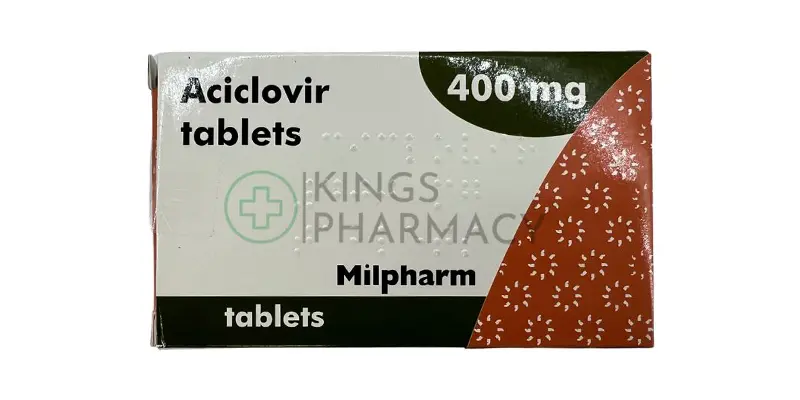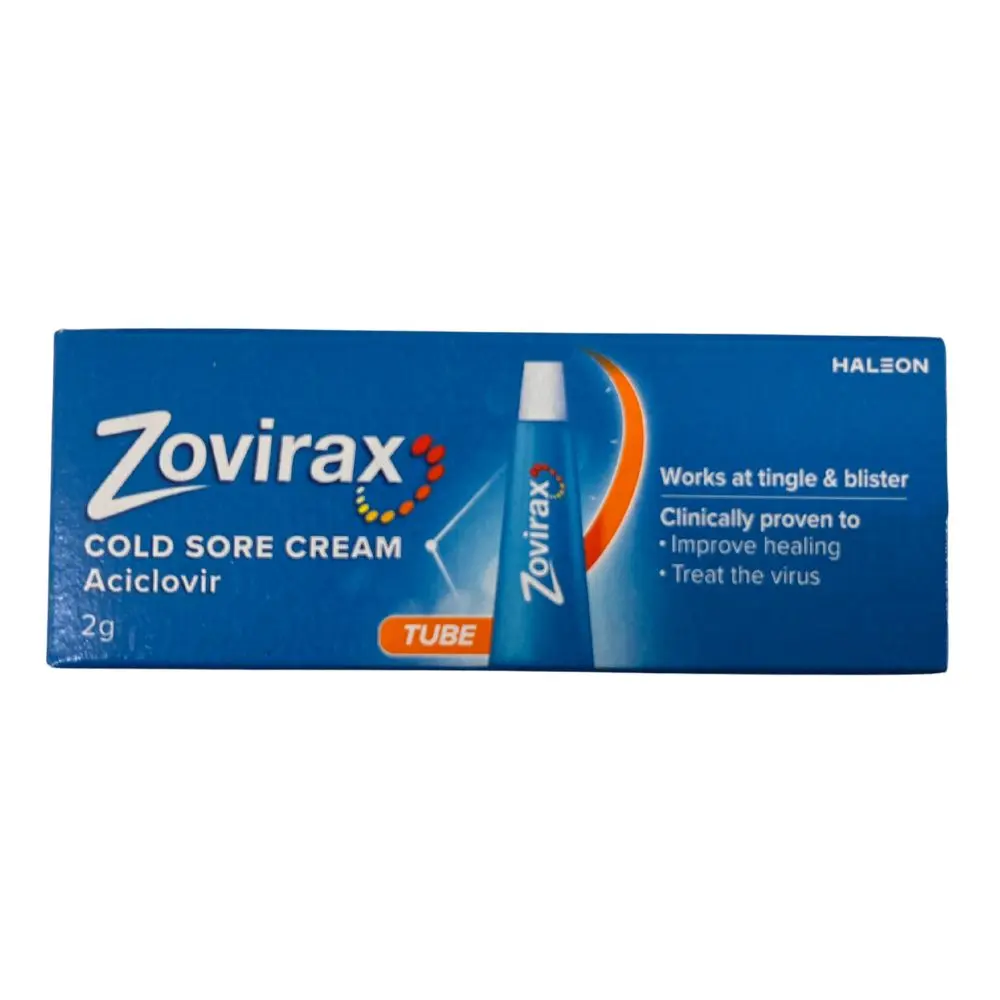Aciclovir for Cold Sores
Aciclovir is an antiviral medication commonly used to treat cold sores caused by the herpes simplex virus. It works by inhibiting the virus's ability to replicate, reducing the severity and duration of symptoms. Aciclovir can be applied as a cream or taken orally to provide effective relief. Regular use at the first sign of an outbreak can help minimize discomfort and speed up healing.
Select Strength
Aciclovir is an antiviral medication commonly used to treat cold sores caused by the herpes simplex virus (HSV). Cold sores are small, fluid-filled blisters that typically appear around the mouth or lips, but they can also occur in other areas of the face or body. This medication helps to reduce the severity and duration of cold sores when taken early in the course of an outbreak.
How Aciclovir Works
Aciclovir works by inhibiting the replication of the herpes simplex virus, helping to limit the spread of the virus and reducing the severity of symptoms. While it doesn't cure the infection, it can help manage outbreaks, speed up healing, and reduce the frequency of future cold sores.
How to Take Aciclovir
- Form and Dosage: Aciclovir is available in various forms, including oral tablets, topical creams, and oral suspension. The exact dosage and form will depend on the severity of your cold sore outbreak and your doctor's recommendations.
- Oral Tablets: Typically, oral aciclovir is prescribed to be taken multiple times a day for 5 to 10 days, depending on the specific condition and your healthcare provider’s instructions.
- Topical Cream: For mild outbreaks, a topical cream may be applied directly to the cold sores. You should start applying it as soon as you feel the first signs of a cold sore (such as tingling or itching) for maximum benefit.
- Start Early: For the best results, begin treatment at the first sign of an outbreak. This can help reduce the length and severity of the cold sores.
Common Side Effects
Aciclovir is generally well tolerated, but like all medications, it can cause side effects. Common side effects include:
Oral Aciclovir:
- Nausea or Vomiting
- Headache
- Diarrhoea
- Dizziness or Light-headedness
- Fatigue or Weakness
These side effects are generally mild and go away after discontinuing the medication or completing the course of treatment.
Serious Side Effects (Less Common)
While rare, some people may experience more serious side effects. Seek immediate medical attention if you experience any of the following:
- Severe allergic reaction: This includes symptoms like swelling of the face, lips, or throat, difficulty breathing, and rash.
- Confusion, agitation, or hallucinations: This may be more common in elderly individuals or those with kidney problems.
- Kidney problems: Symptoms include reduced urination, blood in urine, or swelling in the legs and feet.
If any of these occur, stop using the medication and contact your doctor immediately.
Precautions and Warnings
Before starting aciclovir, inform your doctor if you have:
- Kidney problems: Aciclovir is excreted through the kidneys, and impaired kidney function can increase the risk of side effects. Your doctor may adjust your dose or monitor kidney function during treatment.
- Pregnancy and Breastfeeding: Aciclovir is generally considered safe during pregnancy and breastfeeding, but you should still discuss its use with your doctor, especially if you are pregnant or planning to become pregnant.
- Hydration: Aciclovir can sometimes cause dehydration or kidney-related side effects, so it’s important to stay well-hydrated during treatment, particularly when taking oral aciclovir.
Special Considerations
- Not a Cure for HSV: Aciclovir does not cure the herpes virus; it only helps manage symptoms. Cold sores can still recur, as the virus remains dormant in the body and can reactivate later.
- Avoid Spreading the Virus: While taking aciclovir, you should still avoid close contact with others, especially during an active outbreak. HSV is contagious, and touching the sores can spread the virus to other areas of your body or to other people.
- Complete the Course: Even if your symptoms improve, it's important to complete the full course of aciclovir as prescribed to prevent a recurrence or incomplete treatment.
When to Contact Your Doctor
You should contact your healthcare provider if:
- Your cold sore symptoms worsen or don't improve after starting aciclovir treatment.
- You experience any severe side effects or an allergic reaction.
- You have frequent or severe outbreaks of cold sores.
- You are unsure whether aciclovir is appropriate for your situation.
What is aciclovir?
Aciclovir is an antiviral medication used to treat cold sores caused by the herpes simplex virus. It helps reduce the severity and duration of symptoms by inhibiting the virus's ability to replicate.
How should I use aciclovir for cold sores?
Aciclovir can be applied topically as a cream or taken orally in tablet form. For the cream, apply a thin layer to the affected area at the first sign of a cold sore outbreak, typically 5 times a day for 4 to 5 days. Follow your doctor's instructions for oral tablets, which are usually taken several times a day for a prescribed period.
What are the common side effects of aciclovir?
Common side effects may include mild skin irritation, burning, or itching when using the cream. Oral aciclovir may cause nausea, diarrhea, headache, and dizziness. Contact your doctor if you experience severe side effects like rash, difficulty breathing, or unusual changes in mood.
Can I use aciclovir with other medications?
Aciclovir can interact with other medications, including certain vaccines and medications that affect kidney function. Inform your healthcare provider about all medications and supplements you are taking to avoid potential interactions.
Are there any precautions I should take while using aciclovir?
Avoid touching your eyes or mucous membranes after applying the cream to prevent spreading the virus. Stay hydrated, especially if taking oral aciclovir, as it can affect kidney function. If you have kidney issues or a weakened immune system, consult your doctor before use.
What should I do if I miss a dose?
For oral aciclovir, take the missed dose as soon as you remember. If it’s almost time for your next dose, skip the missed dose and resume your regular schedule. Do not double up on doses.
How should I store aciclovir?
Store aciclovir cream at room temperature, away from moisture and heat. Oral tablets should be kept in a cool, dry place. Keep all medications out of reach of children and do not use them past their expiration date.





